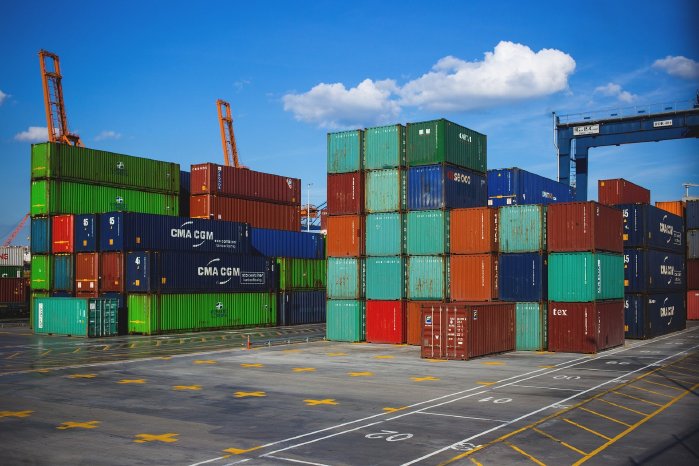Looking at the previous month, however, exports fell short of expectations. Compared with March 2021, exports rose only 0.3 percent in April; economists had expected 0.5 percent. At the same time, imports fell by an unexpectedly sharp 1.7 percent. Exports were thus 0.5 percent below, and imports 5.5 percent above, the pre-crisis level of February 2020.
The Federation of German Industries (BDI) recently forecast a real increase in goods exports of 8.5 percent. However, the "race to catch up in German exports" is still a long time coming, according to BDI Managing Director Joachim Lang. Lang attributes this primarily to supply bottlenecks, which have recently slowed down the development of industry. After a strong rise in April, the mood of exporting companies was dampened again slightly in May due to the shortage of raw materials. The Ifo Institute's export expectations for industry fell to 23.0 points, down from 23.9 points in April.
Bottlenecks for intermediate products
The order books are filled, but production is shrinking: Due to bottlenecks in semiconductors, lumber and other preliminary products, industry, construction and energy suppliers produced one percent less in April than in March, the Federal Ministry of Economics calculates. Industrial production alone contracted by 0.7 percent. The ministry spoke of "a slight damper caused by a shortage of intermediate products (especially semiconductors and construction timber)." The industry was still affected by indirect pandemic pressure, commented Bankhaus Lampe's chief economist Alexander Krüger. "Longer delivery times and material bottlenecks are actually signs of a boom, which currently does not exist at all." Construction saw a decline of 4.3 percent in April. Energy production, on the other hand, increased noticeably by 6.0 percent from the previous month.
However, the disappointing figures also have an impact on the outlook for the future. Production expectations in German industry had "deteriorated somewhat at a high level," the Munich-based Ifo Institute reported on the basis of its monthly survey of companies. However, the picture in the individual industries was very differentiated, said Ifo expert Klaus Wohlrabe. "The automotive industry and its suppliers are scaling back their expectations significantly, but continue to expect production increases." Clothing manufacturers, on the other hand, report for the first time in nine months that they plan to expand production. Continued large increases in production are also expected in beverage manufacturing, data processing equipment production and mechanical engineering.
And the export-dependent industry can benefit from the recovery in world trade after the Corona slump. After the historic slump in 2020, the global economy is likely to grow this year at its fastest
rate since 1976, predicts the International Monetary Fund (IMF). The drivers are expected to be the two most important customers for goods 'Made in Germany': the USA and China.
This is one of the reasons why the Federation of German Industries (BDI) is forecasting a significant increase for the current year. As supply bottlenecks ease, industrial production and exports are likely to rise more significantly again. However, a full recovery of the German economy would depend to a large extent on the success of the vaccination program and a clear plan for a return to normality.
Von Dirk Mewis

